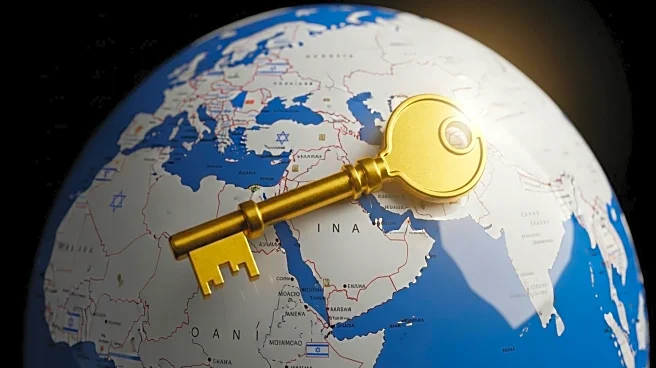What's Happening?
President Trump is scheduled to visit Israel and Egypt as part of efforts to mark the end of the Gaza conflict. This visit coincides with the planned release of hostages and prisoners by Hamas and Israel. The trip underscores the ongoing diplomatic engagements aimed at resolving tensions in the region. President Trump's visit is expected to include meetings with families of released hostages, highlighting the humanitarian aspect of the conflict resolution process.
Why It's Important?
The visit by President Trump to Israel is significant as it represents a high-level diplomatic effort to address the aftermath of the Gaza conflict. The release of hostages and prisoners is a critical step towards easing tensions and fostering peace in the region. This development could have broader implications for U.S. foreign policy in the Middle East, potentially influencing future diplomatic strategies and engagements. The humanitarian focus of the visit also underscores the importance of addressing the needs and concerns of affected families, which could impact public perception and support for U.S. involvement in the region.
What's Next?
Following President Trump's visit, further diplomatic discussions are likely to continue between the involved parties to ensure the stability and security of the region. The release of hostages and prisoners may pave the way for more comprehensive peace talks and agreements. Stakeholders, including political leaders and international organizations, are expected to monitor the situation closely and may engage in additional negotiations to solidify peace efforts.
Beyond the Headlines
The visit and subsequent actions may have long-term implications for U.S.-Middle East relations, potentially influencing future diplomatic and military strategies. The humanitarian aspect of the visit highlights the ethical considerations in conflict resolution, emphasizing the importance of addressing the needs of civilians affected by warfare.









